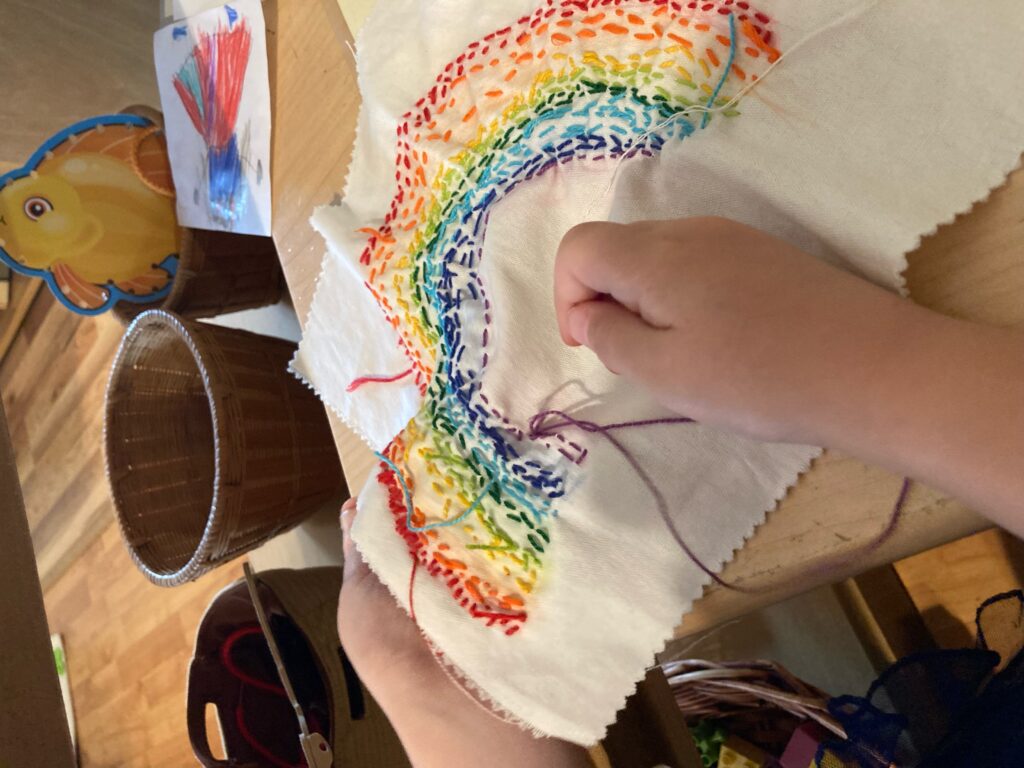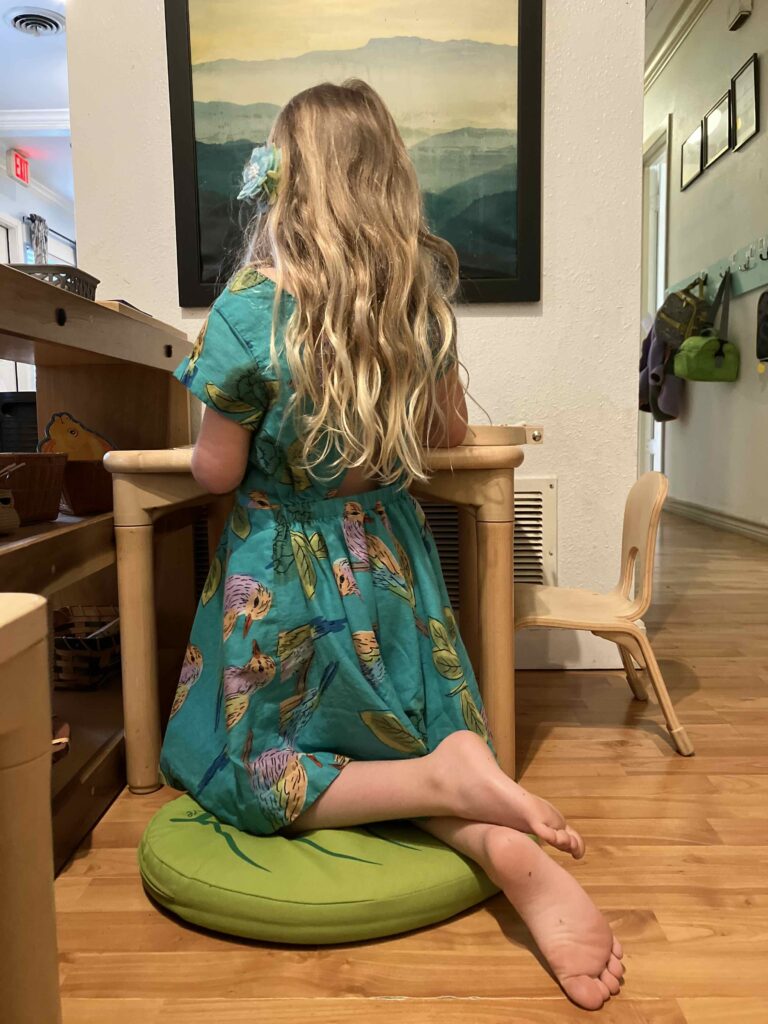Recently two of our older students, a 5- and a 5 1/2-year-old, have been enjoying working on embroidery together. And by recently, we mean, the past 6 or 8 weeks. They have done a few other Montessori works here and there, but sewing has been their main focus.
It’s been long enough that we teachers asked ourselves – “Shouldn’t they do some math?” “They’ve done enough sewing–isn’t time to read and write a little bit?” These questions naturally come to teachers’ minds when observing children in the classroom. But the answer is always NO. We respect children’s concentration. We let them keep on keeping on.
These two children are among the oldest in our classroom, at age 5 1/2 they are approaching the second plane of development, a time when, according to Dr. Montessori, peer projects are desirable by children. The children at this stage seek meaningful connections by working with a friend. Sewing is a great task for this in that while they are building their concentration, coordination, stamina and work ethic, they are also building social skills.
“To have learned something is for the child only a point of departure. When she has learned the meaning of an exercise, then she begins to enjoy repeating it, and she does repeat it in infinite number of times, with the most evident satisfaction. She enjoys executing that act because by means of it she is developing her psychic activities.”
–Maria Montessori
Yes, they are having fun sewing. They chat together. They stop to help younger kiddos complete a task they might be having trouble with. Their fine motor skills are rapidly improving. They are experiencing the diligence it takes to complete a big project. They deal with the frustration of making mistakes. They fix these mistakes. (Let’s face it–how many adults can’t face fixing a mistake?)
For a child to do work or activities just to meet certain timetables curricula is unfair to their natural instincts. To do so is to risk the child resenting the teachers, the task at hand and school in general. By “following the child” and allowing these girls to complete the work of their choice truly sets them up to succeed in the years ahead.
“Under the urge of nature and according to the laws of development, though not understood by the adult, the child is obliged to be serious about two fundamental things… the first is the love of activity… The second fundamental thing is independence.”
Maria Montessori
Related reading: “Play is the work of the child.” (Or is it?)


